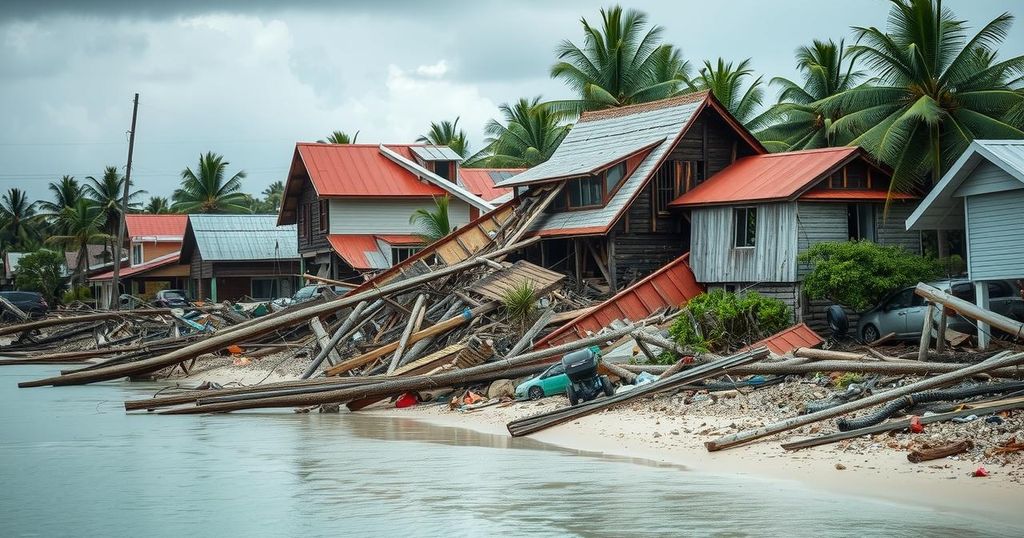Cyclone Chido has caused widespread destruction in Mayotte, especially in the island’s shantytowns. With maximum wind gusts of over 220 km/h, many tin homes were destroyed, resulting in at least two reported deaths. Authorities warn that the human toll may rise significantly as assessments continue, with severe weather still posing dangers in the aftermath.
Tropical Cyclone Chido has inflicted significant devastation upon the archipelago of Mayotte, particularly affecting the island of Grande-Terre on the morning of December 14. The cyclone’s eye passed through the area, leading to chaos and destruction. Ambdilwahedou Soumaila, the mayor of Mamoudzou, reported that two individuals tragically lost their lives in the shantytown of Kawéni when furniture collapsed on them during the storm. Authorities remain concerned that the total number of casualties may be much higher than currently known.
François-Xavier Bieuville, the Prefect of Mayotte, stated, “Many Mahorais have lost everything,” emphasizing the extensive damage caused. A red alert was declared, signaling ongoing concerns due to anticipated rain and continuing strong winds, which have left entire neighborhoods in ruins. The mayor of Mamoudzou described the destruction of local shantytowns, saying they were “swept away like crumbs.” With approximately one third of the housing in Mayotte comprising tin structures, many homes were rendered uninhabitable.
Wind gusts exceeding 220 km/h caused roofs to be torn off and windows shattered in more robust concrete buildings. The cyclone also resulted in the widespread uprooting of trees, complicating already precarious traffic conditions in the area. The full extent of the human and structural toll remains unknown as officials continue to assess the damage amidst persistent perilous weather conditions.
The recent impact of Cyclone Chido on Mayotte, a region recognized as France’s poorest department, showcases the vulnerability of its infrastructure and the socio-economic challenges faced by its residents. The archipelago’s reliance on inadequate housing structures, particularly tin huts, has resulted in a heightened risk of devastation from severe weather events. The combination of extreme wind speeds, severe rainfall, and the region’s existing socio-economic conditions has significantly exacerbated the cyclone’s impact. Mayotte is located in the Indian Ocean and has frequently encountered storms, but the intensity of Cyclone Chido has marked a particularly grave occurrence. Local authorities are now tasked with emergency response and recovery measures, which include assessing damage, providing aid, and managing public safety amid ongoing adverse weather conditions.
In summary, Cyclone Chido has caused extensive damage across Mayotte, particularly devastating neighborhoods and leading to tragic loss of life. The ongoing threat from adverse weather complicates recovery efforts as local officials assess the full extent of the disaster. As Mayotte moves forward in the wake of this catastrophe, the resilience and preparedness of its community and infrastructure will be critical in mitigating future risks from such natural disasters.
Original Source: www.lemonde.fr







